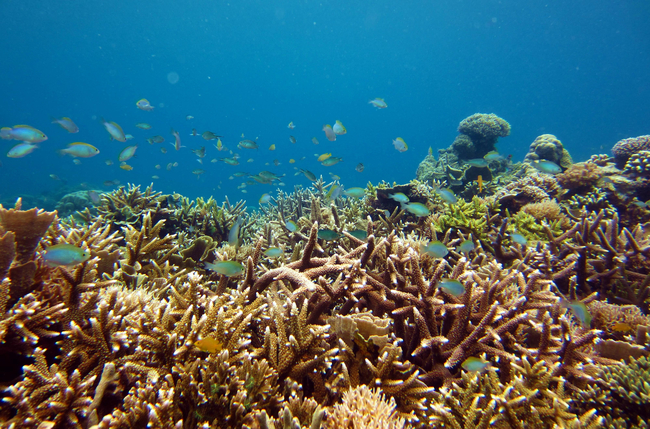Tropical coral reefs provide substantial ecosystem services on a global and local scale: they produce fish, protect shore lines, provide tourism recreation, and host a huge biodiversity. But coral reefs face unprecedented degradation that stems from various drivers operating at multiple levels: for example, ocean acidification, temperature rise, eutrophication or overfishing. From an economics perspective, coral reefs are common pool resources, meaning that all would benefit from halting degradation. However, the pursuit of individual benefits creates incentives to continue destruction.
This project contributes to resolving the crisis of tropical coral reefs by employing different methods from economics, ethnography, and ecology to investigate the factors that determine people’s willingness to contribute to solving the coral commons dilemma. Results will help to find institutional mechanisms to address the crisis. The project is innovative in that it focuses on an ecological resource, but puts the emphasis on the analysis of humans as the primary ecosystem engineer. Also, it investigates the interaction between a global and a local collective action problem by combining different methods.
Project components
- Cross-cultural public good experiment (ZEW)
- Natural field experiments (ZMT, GfK, The Nature Conservancy, Jacobs University)
- Spatially explicit econometric modelling (RWI)
- Ethnographic assessment (ZMT, Jacobs University)
- Ecological assessment (ZMT)
Project Partners (Germany) |
International Project Partners | |
|---|---|---|
|
Leibniz Centre for Tropical Marine Research (ZMT) Prof. Dr. Achim Schlüter (Project coordinator) Centre for European Economic Research ZEW RWI - Leibniz Institute for Economic Research Gesellschaft für Konsumforschung GfK Jacobs University Bremen |
Indonesia Centre for Coastal and Marine Resources Studies, Bogor Agricultural University Department of Economics, Universitas Gadjah Mada
The Nature Conservancy |





